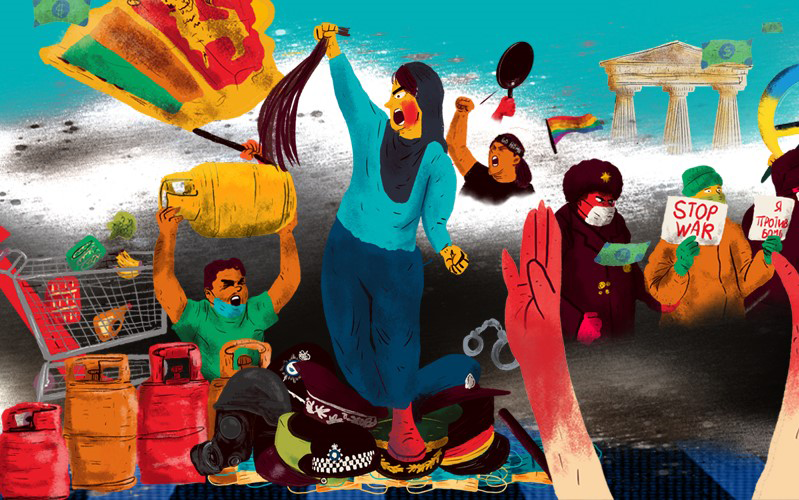Global Assessment on Protest Rights 2022

The Global Assessment on Protest Rights 2022, compiled by CIVICUS Monitor, an online research platform that tracks fundamental freedoms in 197 countries and territories, reveals that in more than 131 countries, from Iran to Italy, people took to the streets to demand political and social change. The report shows that violations of protest rights, protected under international law, occur in more than 75% of the countries where protests have been recorded. In the past year, restrictions on protests were implemented in countries with a long history of democracy as well as in authoritarian states, and protesters were arrested in more than 92 countries.
All over the world, governments are using tactics to suppress protests.
Although international law states that states must guarantee the right to peaceful assembly, restrictions on this right occur before, during and after protests. In many countries, restrictive laws or emergency regulations have been adopted to make protest difficult, including the need for permits and the imposition of taxes. Authorities have also resorted to outright bans to prevent protests from taking place, often citing reasons such as disturbing public order, security concerns or public health reasons.
Organizers also face intimidation, harassment and surveillance during the planning and are sometimes subject to house arrest right before a protest.
Out of 33 categories of violations of civic freedoms monitored by CIVICUS Monitor, detention of protesters was the number one violation since 2020. Detention is a pervasive and most widespread practice used by authorities to prevent and disrupt protests and punish protesters. Detention periods can vary from hours to indefinitely. Peaceful protesters against the war in Ukraine, solidarity for women's rights in Iran and Sri Lankan activists demanding a change of government have faced long periods of detention.
The disproportionate use of force has also been a recurring theme of this year's protests. Protesters were confronted with water cannons, batons, tear gas and other acts of brute force in more than 40 per cent of the countries that recorded protests. Police violence during protests was most prevalent in the Americas and Asia Pacific.
From Myanmar to the United States, some protesters even lost their lives during 'peaceful' demonstrations and in many cases the murders committed by the authorities were not properly investigated.

